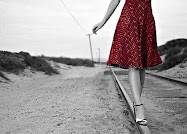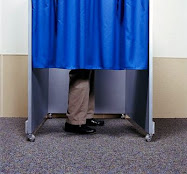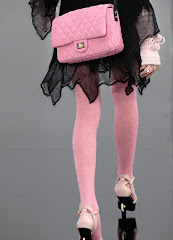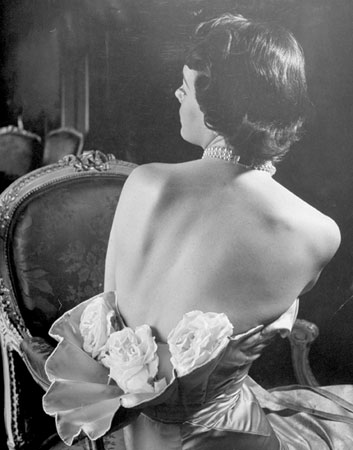
Sen. John McCain and his allies say that they are. The country, they say, could be headed to a 2008 version of the famous 1948 upset election, with McCain in the role of Harry S. Truman and Sen. Barack Obama as Thomas E. Dewey, lulled into overconfidence by inaccurate polls.
"We believe it is a very close race, and something that is frankly very winnable," Sarah Simmons, director of strategy for the McCain campaign, said yesterday.
Few analysts outside the McCain campaign appear to share this view. And pollsters this time around will not make the mistake that the Gallup organization made 60 years ago -- ending their polling more than a week before the election and missing a last-minute surge in support for Truman. Every day brings dozens of new state and national presidential polls, a trend that is expected to continue up to Election Day.
Still, there appears to be an undercurrent of worry among some polling professionals and academics. One reason is the wide variation in Obama leads: Just yesterday, an array of polls showed the Democrat leading by as little as two points and as much as 15 points. The latest Washington Post-ABC News tracking poll showed the race holding steady, with Obama enjoying a lead of 52 percent to 45 percent among likely voters.
Some in the McCain camp also argue that the polls showing the largest leads for Obama mistakenly assume that turnout among young voters and African Americans will be disproportionately high. The campaign is banking on a good turnout among GOP partisans, whom McCain officials say they are working hard to attract to the polls.
"I have been wondering for weeks" whether the polls are accurately gauging the state of the race, said Steven Schier, a political scientist at Carleton College in Minnesota. Borrowing from lingo popularized by former defense secretary Donald H. Rumsfeld, Schier asked what are the "unknown unknowns" about polling this year: For instance, is the sizable cohort of people who don't respond to pollsters more Republican-leaning this year, perhaps because they don't want to admit to a pollster that they are not supporting the "voguish" Obama?
If so, that could mean the polls are routinely understating McCain's support. "I have no evidence that this is happening," Schier said, but he added: "I'm still thinking there's a 25 percent chance that this is a squeaker race and McCain pulls it out."
Other experts are less uncertain. Ruy Teixeira, a political demographer at the Center for American Progress and the Century Foundation, said averaging the daily polls points to "pretty much the same thing -- that the race is pretty stable and that Obama has a stable lead. Typically, when you are this far ahead at this point, it's hard to lose."
"It is very unlikely that we are going to get surprised by a last-minute movement," said John R. Petrocik, chairman of the political science department at the University of Missouri. "Obama has been running six to eight points ahead for the better part of two weeks, and it's hard to imagine that turning around."
The McCain campaign's case that the race is closer than many polls suggest appears to rest largely on the proposition that the composition of the electorate this year will closely resemble that in 2004.
McCain pollsters do anticipate that turnout could be even higher this year than the robust turnout four years ago, but they also expect that Democratic gains among African American voters and younger voters will be offset by higher turnout among more Republican-leaning voters. They also assert the race is tightening in battleground states, with independent voters increasingly receptive to McCain.
"As other public polls begin to show Senator Obama dropping below 50% and the margin over McCain beginning to approach margin of error with a week left, all signs say we are headed to an election that may easily be too close to call by next Tuesday," McCain pollster Bill McInturff wrote in a memo released last night by the campaign. Obama officials voiced confidence in their ultimate victory but said they have always expected the election to be close.
To buttress its point of view, the McCain team points to results reported yesterday by the Gallup organization, whose daily tracking poll showed Obama up 49 percent to 47 percent using Gallup's traditional turnout model, which assumes that turnout will follow the patterns of past elections. Obama has a larger lead, seven points, using a model that allows a higher presence of first-time voters.
A Pew Research Center poll released yesterday shows a 15-point lead for Obama, a result based on relaxed criteria for when to consider an African American respondent a likely voter, said Andrew Kohut, president of the center. He said the poll shows that roughly 12 percent of the electorate this year is black, up from 2004, with a similar increase among younger voters. Kohut defended this approach, saying there are historically high levels of interest in this contest among both demographic groups. At the same time, he added, "we've consistently shown less enthusiasm and engagement among Republicans than is typical, and the composition of the electorate shows that."
Kohut said several variables signal Obama has not convinced voters, such as a large number of respondents in the Pew poll who see the Illinois Democrat as a risky choice. But Kohut said the odds are against "a huge shift" in voter preferences by Election Day.
Some polls show Obama with a healthy lead even without an assumed surge in African American and young voters. Obama's seven-point lead in the Washington Post-ABC News poll is not premised on disproportionately higher turnout among those demographic groups. The poll's turnout model currently shows that 10 percent of likely voters are black, compared with the 11 percent who voted in 2004, according to the network exit poll. Voters younger than 30 make up 16 percent of the Post-ABC sample, little different from the 17 percent four years ago.
Post polling director Jon Cohen said the survey designers "carefully consider a range of likely voter scenarios and use our best judgment. Our polling throughout the campaign has been on target and, we believe, helpful to understanding what is really happening. I hope it stays that way."
He noted that to address "one potential pitfall," The Post and ABC conduct interviews with a random selection of those who have only cellular phone service alongside a traditional random sample of those with residential phone service. One recent criticism of current polling has been that it does not accurately capture the sentiments of those who primarily use cellphones.



















